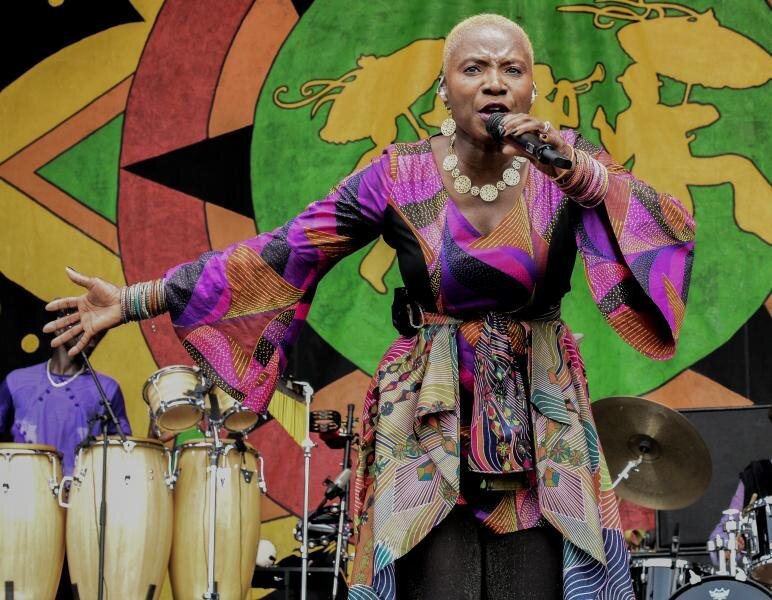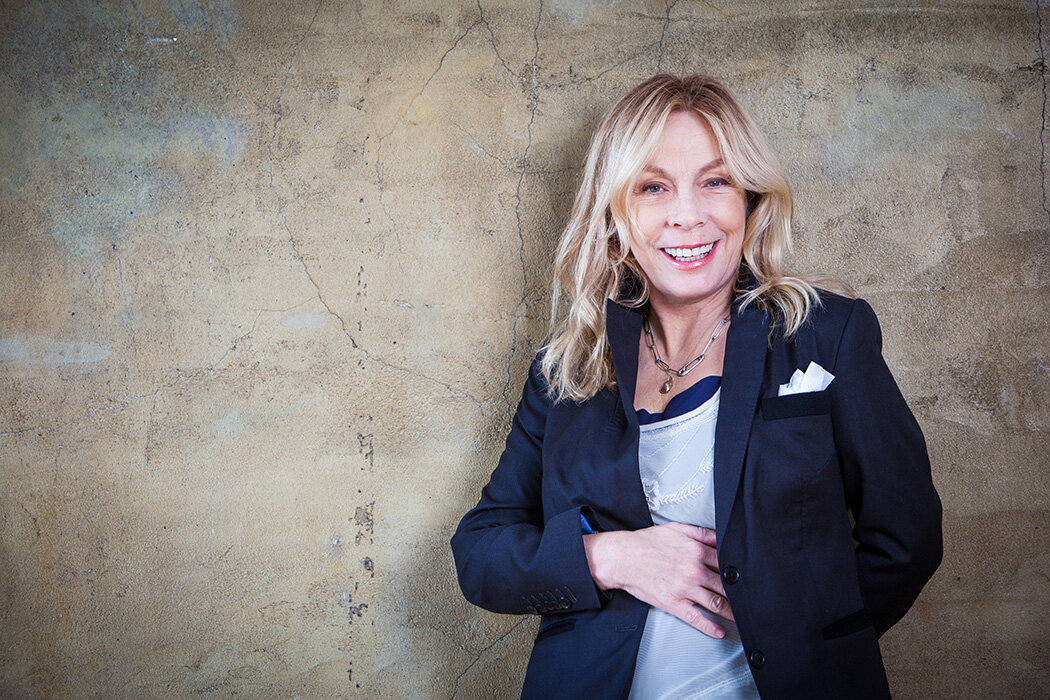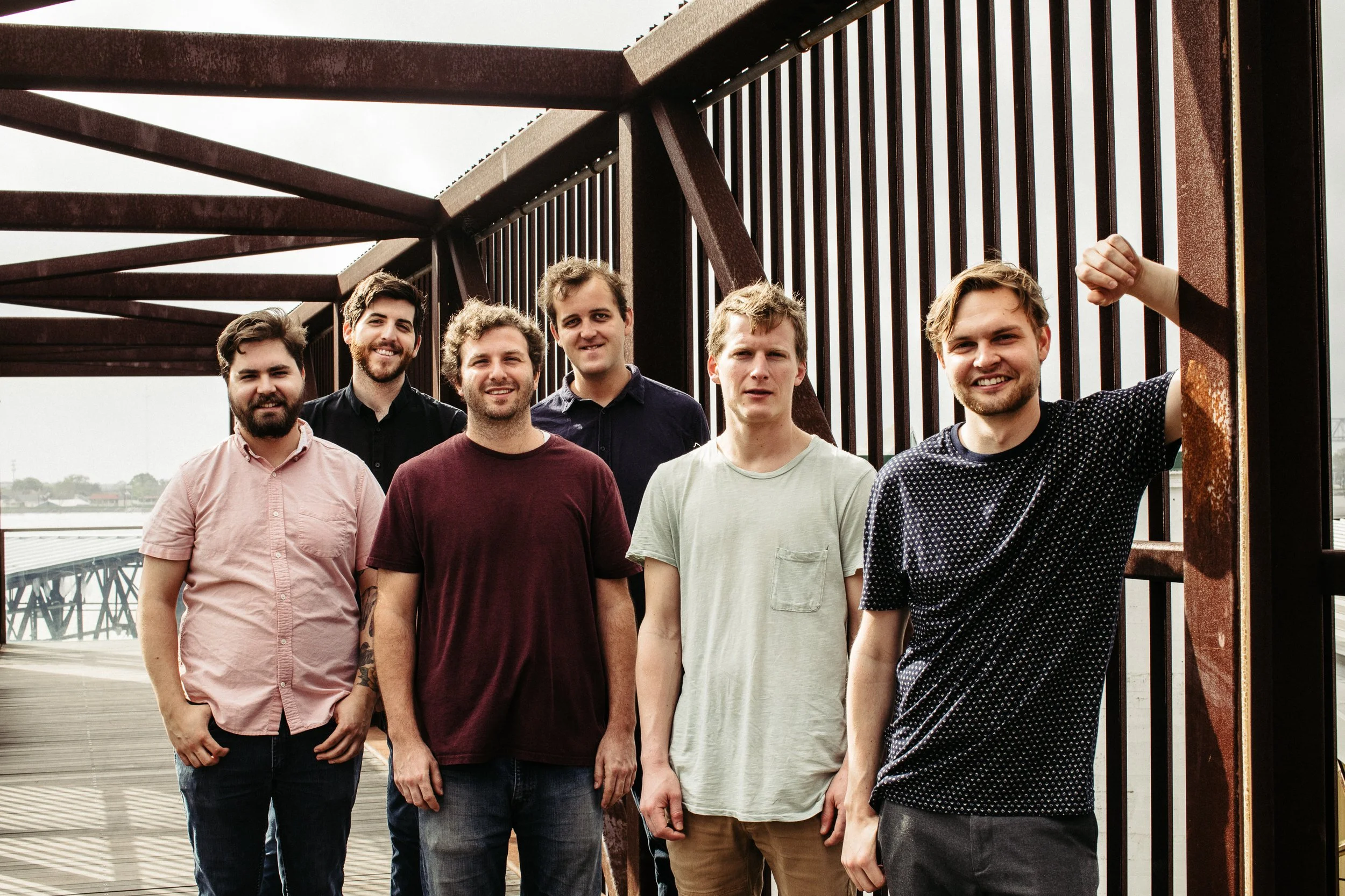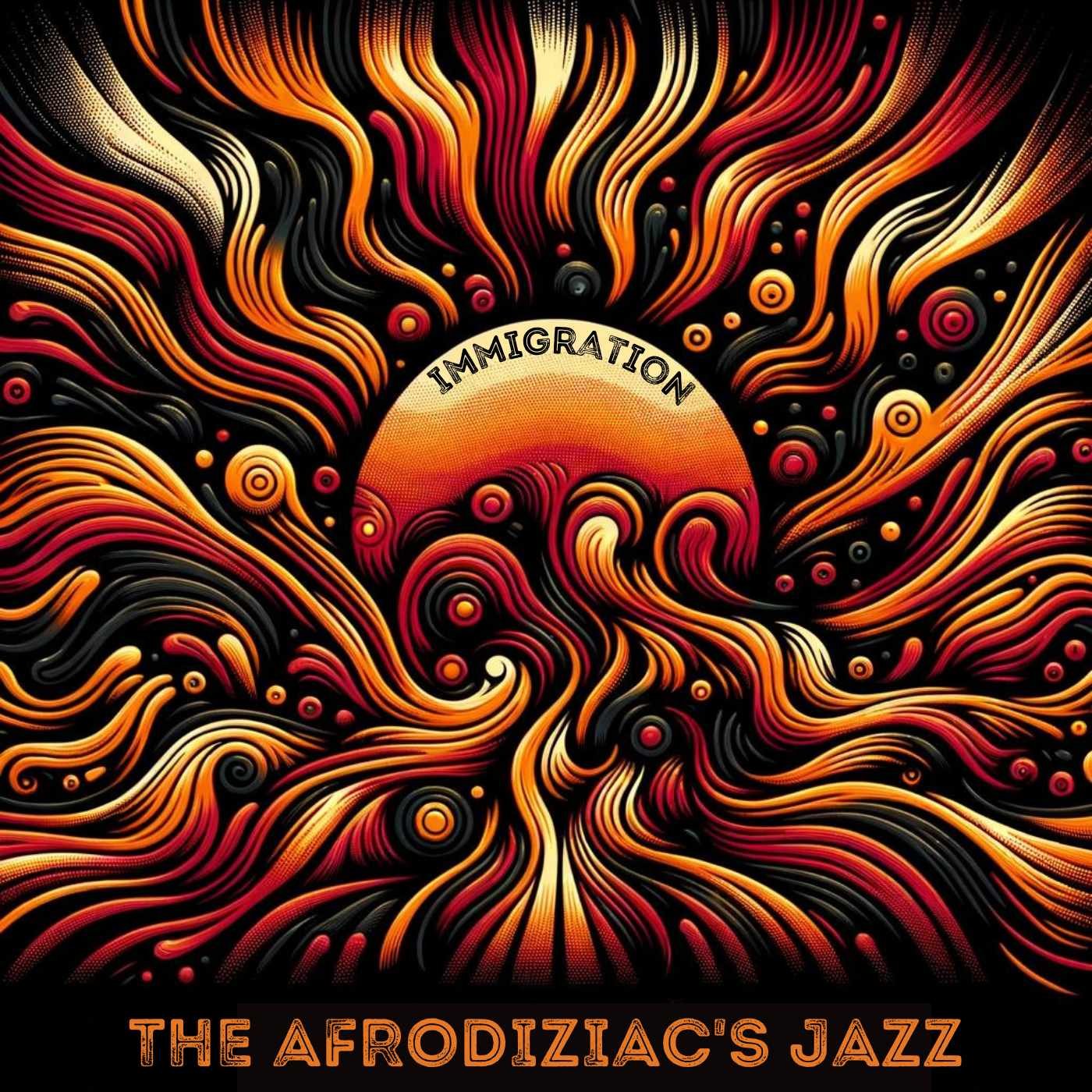The Journey's the Thing for Maude Caillat at French Quarter Festival

Maude Caillat, by Victoria Conway
“Swiss-born” says little about the saxophone player who currently leads four bands in New Orleans.
“Where are you from? is a terrible question.”
Over coffee, saxophone player Maude Caillat points out why as she patiently traces her journey from Switzerland to Senegal to Paris to New Orleans, and how her personal and musical identity can no longer be traced cleanly to any one of those places. “My accent doesn’t sound Swiss anymore,” she says, and she would very unhappy playing the alpenhorn or the traditional brass music played in her village.
At the same time, her music isn’t conventionally African. Caillat does play in the Kumasi Afrobeat Orchestra, but when she was growing up, she had black and white photos of American jazz greats pinned up on the walls of her bedroom. Jazz in a number of forms shaped her sound, and the actual and cultural miles covered by her journey have made Caillat musically restless, so much so that she leads four bands: The Afrodiziac’s Jazz Band, Single Malt Please, Bra’s Brass Band, and the Maude Caillat Band, which will play the House of Blues Voodoo Garden Stage on Sunday at 1:30 p.m. during the French Quarter Festival. She planned to have a new album ready in time for the show, but the finishing stages of the project have put that plan in jeopardy.
For Caillat, the better question is Where are you now? but the answer isn’t any easier.
Caillat started to play as a child in Switzerland, where her father focused her on classical music. He taught her to read music and play the flute, then when she was eight she tried the saxophone. “It took me a few years because my hands were very short,” she says. Though she was drawn to it immediately, her parents continued to focus her on the flute for years. She remembers her mother playing The Doors at home, so her musical upbringing wasn’t strictly classical, but it wasn’t until Caillat turned 12 that she got her first alto sax. By the time she was 15 she was playing in reggae bands and heavy metal bands with friends from school in addition to the brass band in her village, Echallens. Each was fun in its way, but her musical path became more singular when she started in music school.
Caillat rented a rehearsal space where she met Bayo Ndiaye, who played saxophone with Baaba Maal in the early 1990s. Caillat began performing with his Senegalese band, and “that was my introduction to playing with a band, playing a real show with a band,” Caillat says. At that point, she wasn’t just along for the ride and playing for laughs. She became involved with the actual workings of the band, and when other Senegalese musicians came to town, she played with them as well. When she turned 18, she packed up and moved to Senegal, where she lived for six years.
Her musical education there was nothing like anything she had received before. For one thing, there weren’t conventional classes. “You find an older musician and follow him wherever he goes,” she says. “When he plays, I’m in the back listening and trying to do the same. Then he brings me onstage to play one song, show me some things, then another song and another song and another song.” Instruments are considered a family legacy, so children born into a family of kora or balafon players will be raised to play the same instrument. “Some of the traditional singers, they won’t even go to school. Some of them will, but most of them as soon as they can talk will stick with the grandfather, singing and singing. That’s all they’re going to do. All day. They start learning their job as soon as they can.”
The musicians weren’t learning to be entertainers either. They weren’t learning scales or theory or harmony or forms. Music was taught as a way to communicate with ancestral spirits, so students were taught how to do it right. Some master percussionists taught that you shouldn’t just pick up a djembe and play it because “you don’t know what spirits you talked to or what you asked for,” Caillat explains. “Or what you’ll have to give after you asked for something.” If they made people dance, it was for a specific reason at a specific time. “There are some things you’re not supposed to play in the summer because that’s going to stop the spirits of the rain. When you only have two months of rain a year, you want to keep it.”
No one would mistake the Maude Caillat Band for Senegalese music. The as-yet-untitled new album echoes those of saxophone players whose sound could be heard as expressions of a spirituality not based in gospel, or as simply adventurous jazz. She admires the freedom in Pharaoh Sanders’ playing, and you hear the influence of his late ‘60s output for Impulse Records. When she gets the room to explore a thought as on “Follow the Camel,” she moves through phases that feel distinct but unified as if she’s mulling it over in her horn. The album can have a spacey, peaceful—perhaps prayerful—vibe on “Cloud City Subway” while “Space Monster” situates her sax in turbulent waters, trying to hold things together.
But that’s just one of Caillat’s bands. The Afrodiziac’s Jazz plays what she thinks of as Ethiopian jazz, and she hopes to have a recording with that band out by the end of May. Single Malt Please is her hip-hop/jazz fusion, and the all-woman Bra’s Band Brass Band is her version of New Orleans brass band music. Most of the projects started organically. “I don’t know if I start things or if things start and grab me on the way,” she says, laughing. In the case of the Bra’s Band, a friend asked Caillat if she could put together an all-woman brass band for a party. When she did, people at the party asked if they could play at their event, then after a couple of those events, another offered them a gig and a band was born.
Forming a brass band was also the realization of a dream. At one point while on tour with a Senegalese band, Caillat found herself separated from the rest of the group and stranded in Paris. While figuring out what to do, she found musicians who played on the streets as a brass band under the name Taras Bulba. Its lineup stayed in flux with more than 1000 members around the world. While she was involved, it was a mix of Arabic, African, Spanish and French musicians unified by a love of brass band music. The Dirty Dozen and Hot 8 loomed large in their musical imaginations, even if it wasn’t obvious in their compositions or performances. “Here you’ve got five guys who sound more powerful than we did with 25,” she says.
Caillat visited New Orleans twice in 2015, once to set up a Taras Bulba show here as part of an American tour. Logistically, finding accommodations for 25 proved challenging, and when the tour ended, she returned to New Orleans to settle in. “That was an intense year of work to make it happen,” she says. “That was fantastic.”
While she embraced New Orleans with open arms, Caillat encountered some resistance. She heard criticism that accused her as a Swiss woman of appropriating African culture. It’s an issue she had thought about—How to ethically and respectfully reflect a music made for a very different cultural context that wasn’t her own?—and she drew some strict lines for herself. She wouldn’t play traditional folk songs because she wasn’t the one to speak to those spirits. She has tried to play music with love, respect, and transparency, honoring and crediting the musical and cultural traditions that shaped her.
“All the people I ask in Africa and the people who teach me, they’re really happy that I keep sharing the music the way they shared it with me,” she says.
While Switzerland is where she was born, she has now lived more than half of her life outside of it. Her accent no longer sounds native, and her connection to its cultural roots are far more distant than those she has spent her adult years exploring. “I have spent half of my life out of my country,” she says. “Switzerland would be inauthentic.”
Right now, she is focused on New Orleans, and when we spoke she was working on an arrangement of the Dirty Dozen Brass Band’s “Blackbird Special” for the Bra’s Band Brass Band. Caillat had to find time to get to it between working, playing and practicing, which takes up most of her day. She knows that there are other cities where she could be better paid for a gig, “but if I’m in another city and I have four gigs a month, what am I going to do the rest of the time?” she asks.
Updated April 15, 9:36 a.m.
Caillat lived in Senegal for six years, not two years as first reported. The text has been updated to reflect this change.
Creator of My Spilt Milk and its spin-off Christmas music website and podcast, TwelveSongsOfChristmas.com.






